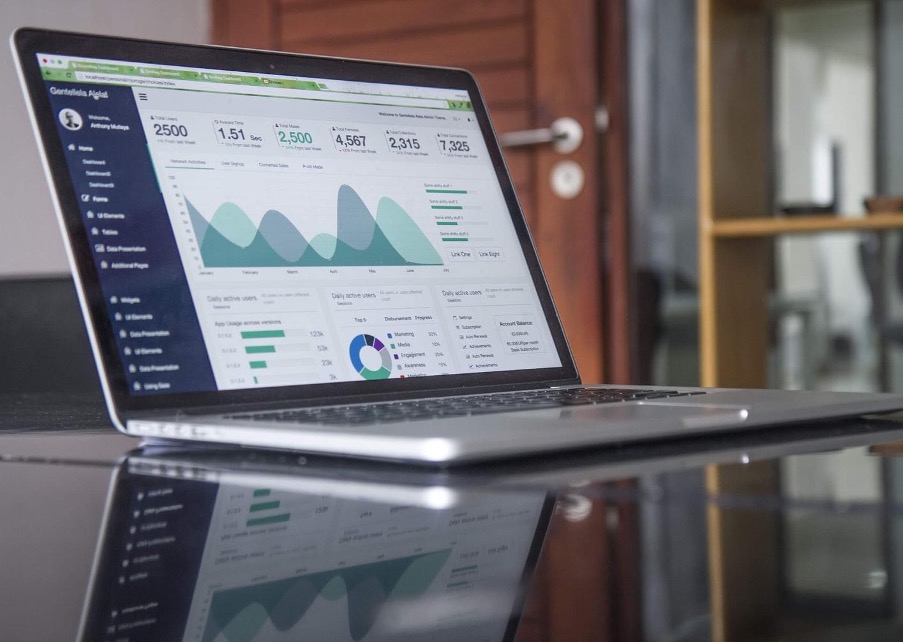MENU

As your e-commerce business is growing, you probably notice that the logistics are becoming more and more complex. The team is also growing and it becomes harder to keep track of all the communications.
These situations can lead to a loss of efficiency regarding time and money. With the help of ERP systems, e-commerce companies that are growing rapidly can successfully overcome these and other challenges.
That’s why more and more e-commerce businesses are implanting ERP systems. When you are new at this, it can seem very complicated. This blog is for the beginners, to help you get clarity on the topic.
To start off slowly, let’s revisit the definition of e-commerce. E-commerce or electronic commerce refers to the buying and selling using the internet. We’re talking about the sale of goods and services, or just any kind of commercial transaction on the internet.
And don’t forget, e-commerce also refers to the transfer of money and data. That’s why when your business is growing fast, it becomes hard to keep track of all this data. Understanding this data is a very important key to the success of your company.
In recent years, e-commerce has quickly evolved. It goes further than the sale of goods and services. E-commerce also makes it easier to discover and purchase products. Whether it’s a large corporation or an independent freelancer, ERP benefits them on a larger scale than traditional offline retail.
Global retail e-commerce sales are projected to grow up to 5.4 trillion US dollars in 2022.
There are four main types of e-commerce models that can describe almost every transaction that takes place between consumers and businesses.
Business to Consumer (B2C)
That’s the most traditional model. It refers to the sale of goods or services, from a business to the consumer.
Business to Business (B2B)
E-commerce also applies to the sale of goods and services from one business to another.
Consumer to Consumer (C2C)
E-commerce also includes the sale of goods and services between 2 consumers. For example, when people use a platform like Ebay to sell stuff.
Consumer to Business (C2B)
When a consumer sells their own products or services to a business or organization. That’s a model seen on social media when influencers offer exposure in exchange for a fee.
E-commerce can also take on a variety of forms. Depending on the form, It can involve different transactional relationships. As well as different objects being exchanged as part of these transactions.
ERP stands for Entrepreneur Resource Planning. It is a cross-functional software that supports all business units within the organization. In brief, it’s a tool used to manage the different departments and functions of a business.
It gives up-to-date information on all departments at all times. It is therefore helping facilitate transparency and unifies actions within the e-commerce company.
It is an online platform used for various aspects of management such as marketing, accounting, human resources, inventory and more.
As your e-commerce company grows, you have to question whether all processes are running efficiently. It often leads to the realization that the processes can be optimized.
With a lack of communication between departments certain activities are carried out twice, resulting in washed financial and temporal resources.
Without an ERP system, all data has to be entered manually and is kept up to date. For workflows between departments are inefficient. Reports are not optimized and it’s way more difficult to keep track of important KPIs (key performance indicator).
An ERP system helps to keep track of various developments to be able to react in real time. It helps e-commerce businesses make managerial decisions by looking at the overall picture.
The ERP system stores all the necessary data about your customer. This way, you know in real time the inventory statuses without any loss of time or human effort. It also takes care of all the shipping logistics.
ERP especially benefits if you are an omni or multichannel retailer. The complexity of selling products through multiple channels often makes an ERP system essential.
Bluebee offers a simple, powerful and modern ERP system that already benefits numerous e-commerce businesses.
Find the perfect program for your kind of business and proceed to our simple implementation.
With its proven structured implementation approach, Bluebee manages to avoid the frequent pitfalls of implementation projects.
Contact us now for more information!
© Bluebee Software Inc. All Right Reserved.